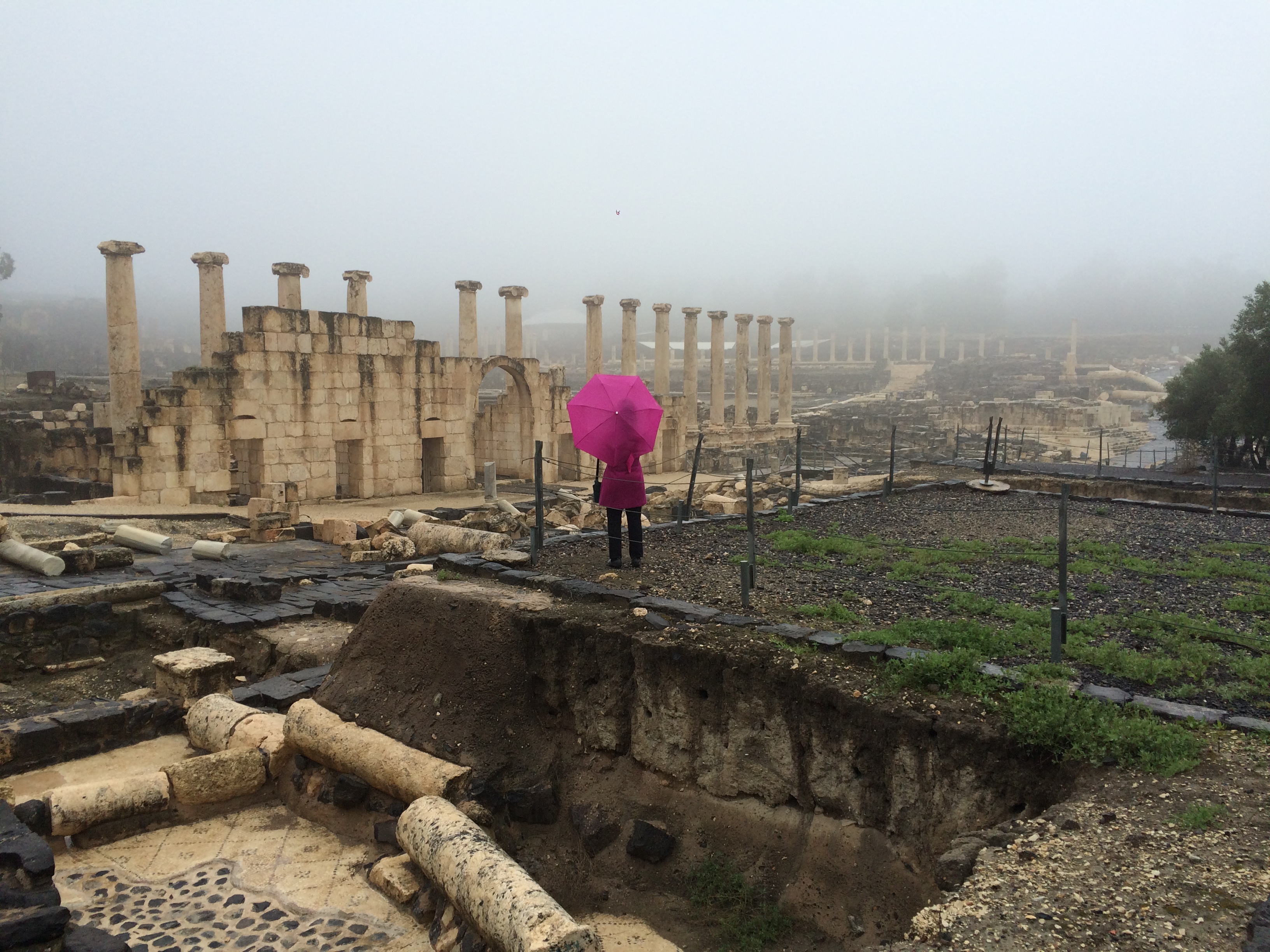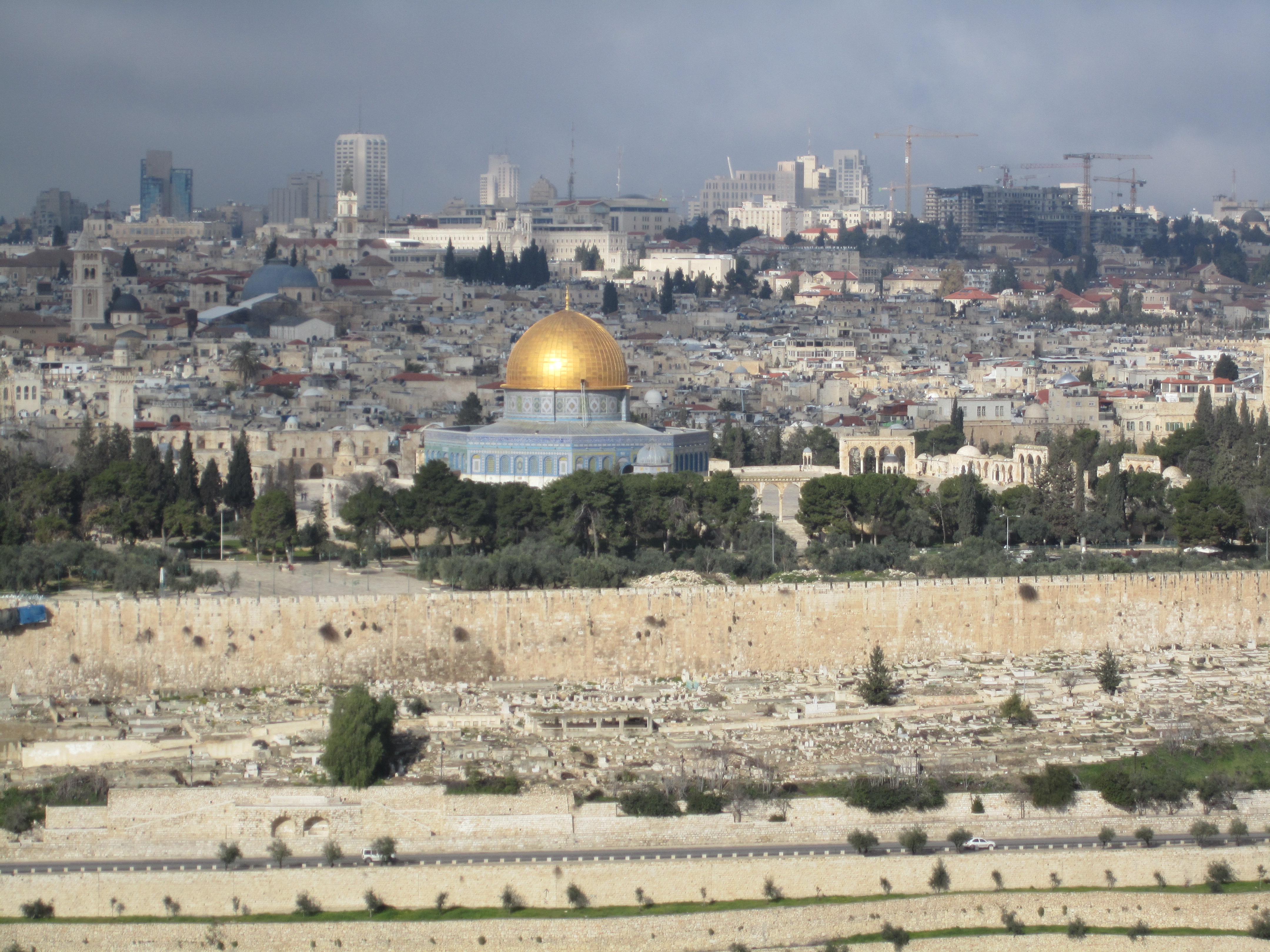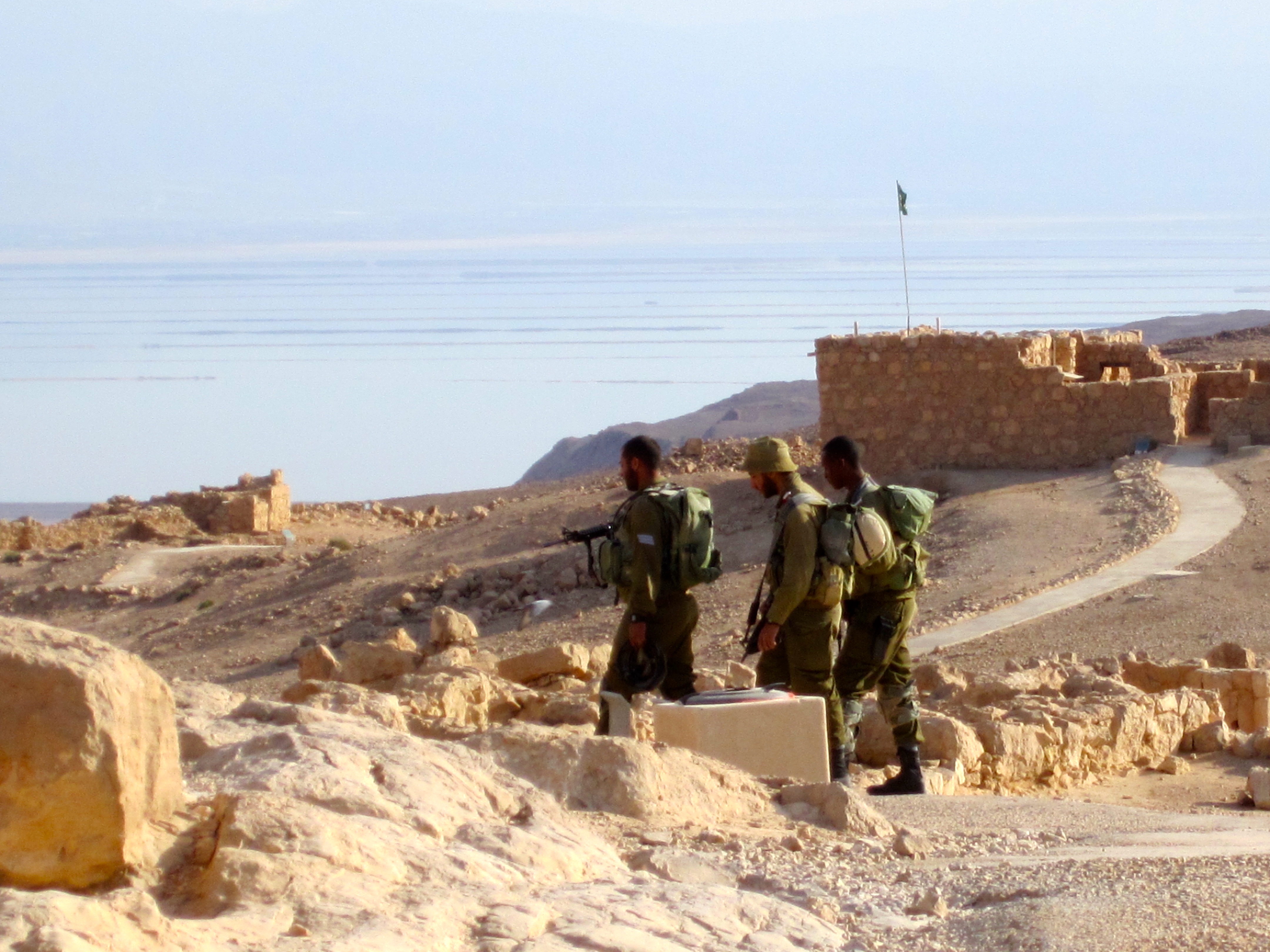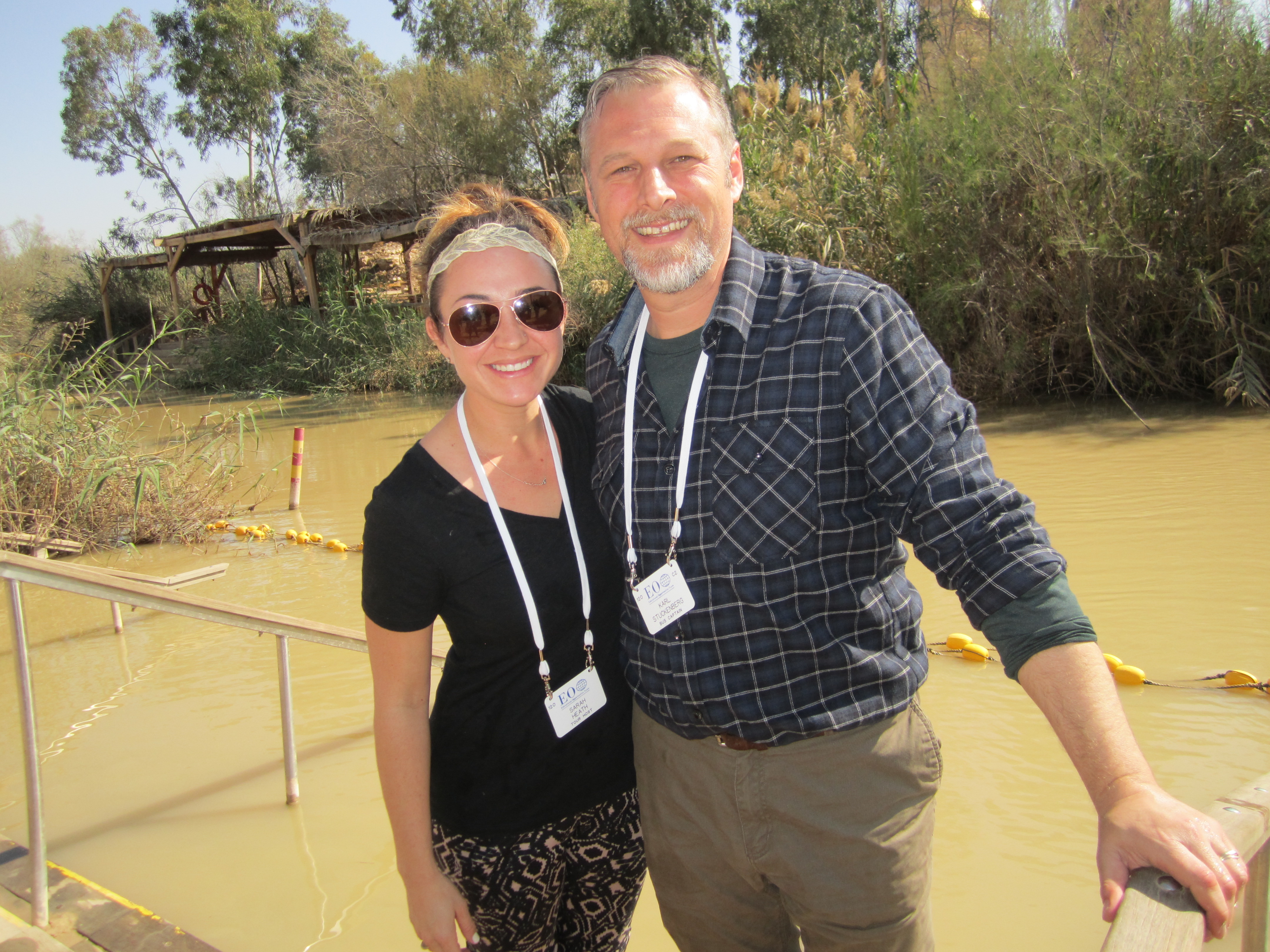isaiah 2:4
4 He shall judge between the nations,
and shall arbitrate for many peoples;
they shall beat their swords into ploughshares,
and their spears into pruning-hooks;
nation shall not lift up sword against nation,
neither shall they learn war any more.
The wind was blowing so hard I thought “little me” might blow away. The clouds were thick and low; I thought if I stood on my very tiptoes there was a chance that I might actually be able to touch them. There was something ominous and threatening about the weather that had been following us around Israel. Today was particularly bad. We had been touring the country for over a week, and most days were filled with this locked in cloud coverage and chilly, cutting wind. It made for dramatic photos but made travel a little more precarious than usual. Even with all the bad weather, I enjoyed the trip immensely. I loved being in the very places that I studied in seminary and have shared about often on Sunday mornings. Today, we were heading into the temple institute, a Jewish center dedicated to sharing the history of the Jewish Temple and their dreams for the future of the Temple in Jerusalem. It was here that my own ability to be interfaith was challenged, and my heart began to reflect the storm clouds in the sky above.
This wasn’t my first time in Israel. The last time I went, I was 21 years old and perhaps not as spiritually mature as I am now. At that point I had studied the bible as much as anyone who has grown up in the church had. Mostly, I just remember visiting all the Christian top hits: the Sea of Galilee, the place where Christ was born, and being awed by the statue at the place Peter denied Christ. At 21, I remember all the rocks started to look the same as we traveled from one historical site to another; I was more of a tourist. Our amazing teacher’s tried to educate us about all the strife that surrounded this tiny plot of land, but truthfully I didn’t understand the conflict in the nation. I was already a seasoned traveler and all the security didn’t scare me very much; I knew it was just an unfortunate part of international travel.
But this time around, I entered Israel as someone a little older and a lot more educated in scripture and faith tradition and less naïve about the social and political situation of Israel and the surrounding nations. We spent this trip visiting all the top hits again, but this time I understood more about what I was seeing. My brain was overloaded as we went from site to site; so many things struck me. I was blessed to be able to see such things in person, but I was also processing what makes this such a difficult and hostile part of the world. As I entered the temple institute I was deeply troubled.
A couple of things were troubling to me. The first is, as a progressive-’ish’ Christian, I like to think that I am open-minded. I like to think that I can relate to any faith, and I understand the importance of our historical and faithful connection to each other. I also like to think that I am pretty good at interfaith conversation; I believe I enter the conversation from a place of mutual respect. What first disturbed me was how much that belief in myself was challenged. I felt my heart troubled again and again by the messages I was hearing about rebuilding the Temple or about the settlements. I understood the deep spiritual need they had for the Temple, and how each generation feels like it has failed until it is rebuilt. I watched the videos on the rebuilding of the Temple that suggested that once that was built, peace would spread across the land. It seemed impossible; didn’t they understand what would happen socio-politically if the Temple went up all of a sudden? The delicate peace that barely exists between faiths, I believe, would cease to exist. I was also deeply troubled by how little had changed in the peace talks in the last 13 years. Things didn’t seem better, and in fact they seemed even more hostile today. Israel is a very safe and beautiful country, but there is an unspoken awareness that just over the hill ISIS and other militant groups are engaging in horrible activity. It seems that more and more divisions are developing, and we aren’t getting closer but further away from each other. Fringe groups like ISIS, Westboro Baptist, and militant Jews have begun to be the only faith groups that make the news. All of this had me disturbed as I walked the ancient streets of Jerusalem.
I was perhaps most deeply disturbed by an American group that was there. It was led by a well-known politician (for the sake of this blog I won’t share which candidate it was) that leads travel groups to Israel. While on the tour, the participants hear all about the importance of evangelical support of Israel so that the new Temple can be built. This group believes that Christ will return once Israel has the Temple again; at least that was the interpretation I heard from one of the tour participants as they were walking around Jerusalem. There were busloads full of Americans tromping around, interrupting the flow of foot traffic, and in my mind spreading a strange end-times ethos. It all felt overwhelming; it felt like the storm clouds were gathering, and at any moment something was going to happen.
I was in this strange fog when I ran into our tour guide. Our guide was an intellectual, humorous and dedicated Jewish man. He was talking to the bus driver, a Palestinian, and the two of them were laughing and engaged in some sort of joyful conversation. In that moment, the clouds cleared for me, and I realized the only way we will ever make headway in all of this is through conversation and relationship. It is easy to hate a people group; it is much harder to hate a person. I don’t say this lightly. I am still scared about militants and fringe groups, but instead of making me want to bury my head or push my ethos further, it makes me want to sit with others and work on one-on-one relationships. I think that’s what God wants from us.




Thanks for sharing your thoughts, Sarah. I agree with your conclusion and had a very similar experience the last time I was in Israel.
I appreciate the post and can relate to the struggle.
A bucket full of wisdom. Thank you.
Really poignant insights, Sarah. The region is so complicated and so weighted with terrible history. I can’t begin to parse it. Thanks for your words.
This journey that we just took is one that will cause us to ponder for years to come. I am struck by the fact that this LAND forget human geographic names”.that this area of the world can stir so much passion in so many diverse souls!
Things are never as straight forward as they seem or as we wish them to be